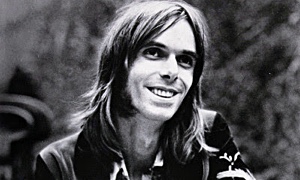Home » Jazz Articles » Film Review » Oscar Peterson: Music in the Key of Oscar
Oscar Peterson: Music in the Key of Oscar
...long before other Americans saw the need to re-examine the concept of racial integration and equal rights, jazz performers and promoters were doing more than breaking down barriers; they were erasing them entirely.
 Oscar Peterson
Oscar PetersonMusic in the Key of Oscar
View Video
2004
With a career now in its seventh decade, Canadian pianist Oscar Peterson has seen some turbulent times, and no more evident is that fact than on Music in the Key of Oscar , which collects a two part television series, originally broadcast by the Canadian Broadcasting Corporation in the mid-'90s. Examining Peterson's somewhat meteoric rise as the ebullient torch carrier for Art Tatum, what perhaps strikes one the most about this 100-minute documentary is how, long before other Americans saw the need to re-examine the concept of racial integration and equal rights, jazz performers and promoters including guitarist Herb Ellis and Jazz at the Philharmonic founder Norman Granz were doing more than breaking down barriers; they were erasing them entirely.
While Peterson's earliest recollections in his native home of Montreal, Canada, showed a more liberal politic than could be found south of the border, early radio broadcasts that constantly emphasized Peterson's colour illustrated that there was still a long way to go. More vivid, in fact, are Peterson's memories of Europe, where in one case a bar filled with musicians and patrons alike, black and white, got up and left the room upon listening to two American navy officers spew racial epithets. As much as the documentary is about the music, it also tries to bring home the black experience coming up in the pre-integrated '40s and '50s. And Peterson's own assertion that Granz deserved recognition for standing up for the artists he was promoting while touring the American south, including an emotional story of Granz going head-to-head with a six-gun toting southern police officer who tried to refuse the musicians access to taxi cabs, sheds a whole new light on the challenges that faced not only the musicians who were trying to make a living, but their racially liberated associates. Images of anti-black rallies and the signs they carried make it clear that the one place where colour really didn't matter was for those of both colours who tried to challenge the status quo.
Against the backdrop of social and political change painted by the documentary as a fundamental and essential part of the climate within which jazz operated and evolved, is the development of Peterson's career. From the early days of the trio with Ellis and bassist Ray Brown, through to Peterson's ultimate liberation as a solo artist who would play with everyone from Count Basie to Ella Fitzgerald, Peterson's career is highlighted with performance footage from every stage of his career. But the lion's share of the material is from Peterson's early '90s reformation of the trio with Brown and Ellis, which proves that sometimes you can go home again. Peterson says how he wanted to show that the trio "still has the magic" and the performances, with Jeff Hamilton on drums, show a group that, after twenty years apart, still retained a remarkable degree of empathy. From Ellis' bluesy lines and Brown's confident yet completely unforced sense of swing to his own vibrant performance, Peterson shows that age and a little arthritis may have slowed him down a bit, but certainly not much. And while he has, in the course of his long career, been sometimes accused of technical overplaying, the reality is that he is as capable of lyrical tenderness as he is playful exuberance.
With in-depth interviews by artists including Herbie Hancock, Quincy Jones, Ella Fitzgerald and Dizzy Gillespie, not to mention considerable interview and voice-over narration by Peterson himself, Music in the Key of Oscar is a vivid portrayal of a life in music, a life in jazz and a life that has seen its fair share of struggle. While Ray Brown is no longer with us, Peterson still is, and his tour this past summer proved, yet again, that his reputation as a progenitor of so many modern players is completely intact. Some may criticize Peterson for not advancing, for finding his niche and staying with it for an entire career, but while he may not be the most revolutionary artist in jazz, Music in the Key of Oscar demonstrates that breaking down barriers can be accomplished in more ways than one, and that Peterson has continued to hone his craft over a long period that is all the more evident when viewing performance footage that spans over fifty years.
Visit Oscar Peterson and View Video on the web.
Tags
Comments
PREVIOUS / NEXT
Support All About Jazz
 All About Jazz has been a pillar of jazz since 1995, championing it as an art form and, more importantly, supporting the musicians who make it. Our enduring commitment has made "AAJ" one of the most culturally important websites of its kind, read by hundreds of thousands of fans, musicians and industry figures every month.
All About Jazz has been a pillar of jazz since 1995, championing it as an art form and, more importantly, supporting the musicians who make it. Our enduring commitment has made "AAJ" one of the most culturally important websites of its kind, read by hundreds of thousands of fans, musicians and industry figures every month.






























